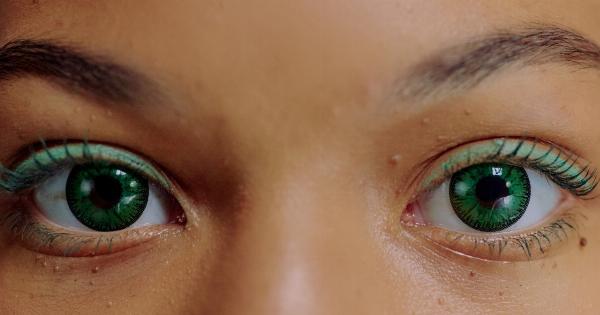Our eyes are one of the most important organs in our body but often we tend to overlook their health. Digital screens, improper diet, and lack of exercise are some factors that affect our eyesight.
However, there are few daily practices which we unconsciously continue doing that can harm our eyesight. In this article, we’ll discuss about those daily practices and how it can harm your eyesight.
Not Wearing Sunglasses While Outdoors
Sunglasses are not just a style statement but also an essential accessory to protect our eyes from harmful UV rays. Prolonged exposure to the sun without proper eye protection can lead to cataracts and other eye diseases.
When choosing sunglasses, ensure that they block 100% of both UVA and UVB rays. Sunglasses with polarized lenses can also reduce glare, making it more comfortable for you to see in bright sunlight.
Ignoring Eye Strain
Eye strain is a common problem for people who work on digital screens for extended periods of time. The symptoms of eye strain include dry eyes, blurred vision, headaches, and neck and shoulder pain.
Ignoring these symptoms can lead to chronic eye problems such as myopia and astigmatism. It is essential to take regular breaks from digital screens to give your eyes a chance to rest.
The 20-20-20 rule is a good practice to follow where every 20 minutes, look away from your screen and focus on an object that is at least 20 feet away for 20 seconds.
Rubbing Your Eyes
When we rub our eyes, we increase the pressure in our eyeballs, which can lead to the distortion of the cornea, irregular astigmatism, and keratoconus.
Rubbing your eyes can also cause tiny tears in the surface of your cornea, leading to blurred vision and eye infections. Instead of rubbing your eyes, you can apply a cold compress or use eye drops to ease any discomfort or itchiness.
Sleeping With Contact Lenses In
Wearing contact lenses for extended periods, especially while sleeping can lead to serious eye infections which can cause blurred vision and even blindness in severe cases.
When you wear contact lenses, your cornea is less able to get oxygen which makes your eyes more susceptible to infections. Always remove your contact lenses before bed and give your eyes a chance to rest.
Not Washing Your Hands Before Using Eye Drops
One of the most common eye infections is conjunctivitis, or pink eye, which is caused by bacteria.
If you don’t wash your hands before using eye drops, you risk transferring bacteria into your eyes and increasing your chances of getting an eye infection. Always wash your hands with soap and water before using eye drops.
Not Getting Enough Sleep
Getting a good night’s sleep is essential for our overall health, including eye health. Lack of sleep can cause eye fatigue, dry eyes, blurred vision, and even dark circles and bags under the eyes.
Studies have shown that sleep deprivation can also increase the risk of glaucoma and other eye diseases. Therefore, it is important to get at least 7-8 hours of sleep every night.
Using Expired Eye Drops
Using expired eye drops can lead to various eye problems such as eye infections and dry eyes. Expired eye drops can also cause redness and irritation in the eyes.
Always check the expiry date on your eye drops and discard them once they have passed their expiration date.
Smoking
Smoking is not only harmful to your overall health but also to your eyesight. Smoking can increase the risk of cataracts, macular degeneration, and damage to the optic nerve, all of which can lead to permanent vision loss.
If you smoke, quitting smoking can help protect your eyesight and overall health.
Eating Unhealthy
Just like the rest of our body, our eyes also require essential vitamins and minerals to function properly.
A diet lacking in nutrients such as Vitamin A, C, E, zinc, and lutein can lead to various eye problems including cataracts and age-related macular degeneration. A balanced diet that includes leafy greens, citrus fruits, nuts, and fish can help improve your eye health.
Conclusion
Our eyes are critical to our well-being, and it is our responsibility to take proper care of them. By avoiding these daily practices that can harm our eyesight, we can ensure that our eyes remain healthy and in good condition.
It is essential to follow a healthy lifestyle, get regular eye check-ups, and protect our eyes from harmful environmental factors.





























